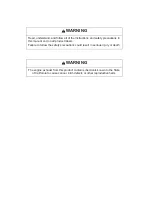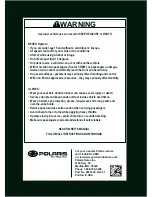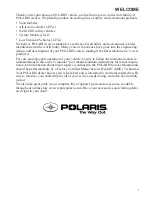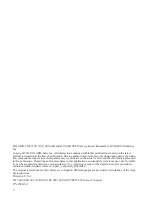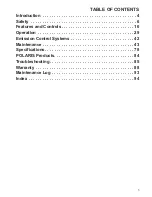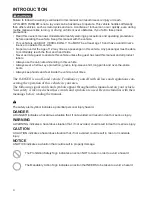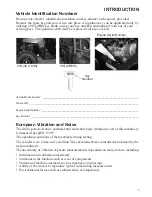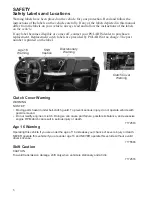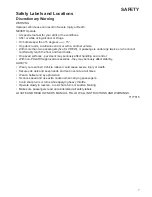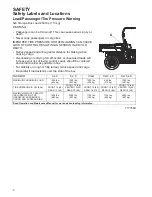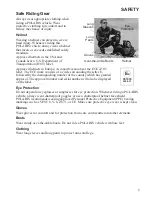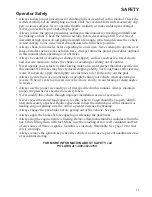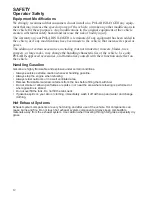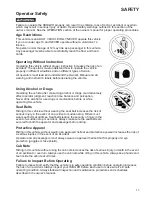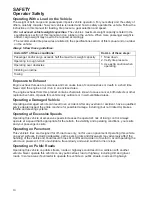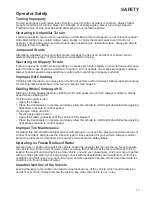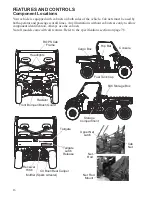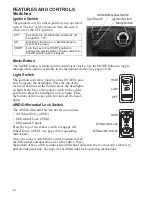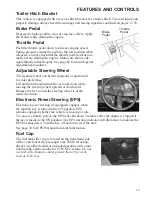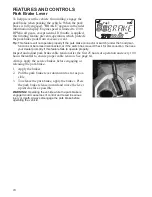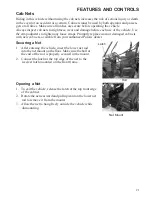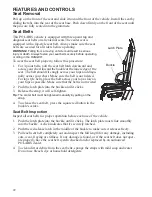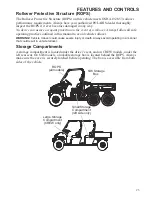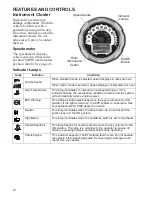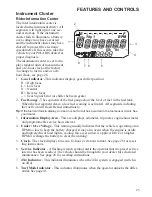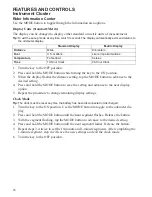
11
SAFETY
Operator Safety
• Always follow proper procedures for climbing hills as described in this manual.
Check the
terrain carefully before attempting to climb a hill. Never climb hills with excessively slip-
pery or loose surfaces. Never open the throttle suddenly or make sudden gear changes.
Never go over the top of a hill at high speed.
• Always follow the proper procedures outlined in this manual for traveling downhill and
for braking on hills.
Check the terrain carefully before descending a hill. Never travel
downhill at high speed. Avoid going downhill at an angle, which would cause the vehicle
to lean sharply to one side. Travel straight down the hill where possible.
• Always check for obstacles before operating in a new area. Never attempt to operate over
large obstacles such as rocks or fallen trees. Always follow the proper procedures outlined
in this manual when operating over obstacles.
• Always be careful of skidding or sliding. On slippery surfaces such as ice, travel slowly
and exercise caution to reduce the chance of skidding or sliding out of control.
• Never operate your vehicle in fast-flowing water or in water deeper than that specified in
this manual. Wet brakes may have reduced stopping ability. Test your brakes after leaving
water. If necessary, apply them lightly several times to let friction dry out the pads.
• Always be sure there are no obstacles or people behind your vehicle when operating in
reverse. When it's safe to proceed in reverse, move slowly. Avoid turning at sharp angles
in reverse.
• Always use the proper size and type of tires specified in this manual. Always maintain
proper tire pressure as specified on safety labels.
• Never modify this vehicle through improper installation or use of accessories.
• Never exceed the stated load capacity for this vehicle. Cargo should be properly distrib-
uted and securely attached. Reduce speed and follow the instructions in this manual for
hauling cargo or pulling a trailer. Allow a greater distance for braking.
• Always engage the park brake before getting out of the vehicle. See page 20.
• Always apply the brakes before engaging or releasing the park brake.
• Always stop the engine before refueling. Remove flammable material containers from the
box before filling them with fuel. Make sure the refueling area is well ventilated and free
of any source of flame or sparks. Gasoline is extremely flammable. See page 12 for fuel
safety warnings.
• Always remove the ignition key when the vehicle is not in use to prevent unauthorized use
or accidental starting.
FOR MORE INFORMATION ABOUT SAFETY, call
POLARIS at 1-800-342-3764.


